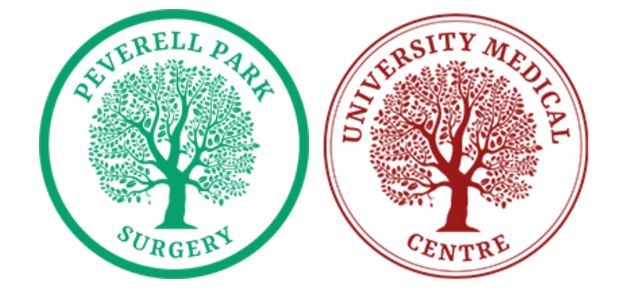Peverell Park Surgery & University Medical Centre
Peverell Park Surgery | 01752 766644 | administration.peverellpark@nhs.net
University Medical Centre | 01752 222341 | administration.umcpeverell@nhs.net
Sorry, we're currently closed. Please call NHS 111

International Students
Peverell Park Surgery has a medical centre on the main campus – Peverell Park is a practice with a long history specialising in the health needs of students at Plymouth. We work very closely with the University of Plymouth and Plymouth Students Union; this ensures that we are continually developing our services to meet your health and academic needs.
Below is some information that you may find helpful but on this website you can change any of the pages to a language of your choice. If English is not your first language, you may want to bring a friend with you to help with communication problems.
In the UK you need to register with an NHS doctor. It is important to do this on arriving, as failure to do so can occasionally result in difficulty accessing free healthcare. Doctors usually work together in health clinics also known as health centres or general practices.
Services on offer include not only dealing with illnesses, but help with healthy living, contraception and sexual health services (including testing for sexually transmitted infections), travel and tropical medicine, dealing with mental health issues, sports medicine, minor surgery and dermatology
The NHS For International Students
The National Health Service and how it works can seem very complicated if you have never had to use the system before.
In the first place you are only eligible to use the NHS if you are either:
- An EU Student
- A non-EU student on a course lasting more than 6 months
- A non-EU student from a country with a reciprocal arrangement with the United Kingdom
What is the NHS?
The NHS is the National Health Service is a country-wide service that aims to deliver health needs to the population of the UK. It encompasses family doctors, hospital, hospital doctors, operations, some dentists and ambulance and emergency departments. It is paid for the tax payers of the UK. The majority of services it provides are free at the point that a person uses them (with some important exceptions). The great strength of the NHS is that it is paid for by the state and so the relationship between you and your medical team can be honest and open and your care based on clinical need alone. Private medicine does exist in the UK and may be offered by some specialists that also work within the NHS. In general, “going privately” may allow you to access services faster that in the NHS but does have a high cost.
What does it Cost?
The majority of services provided by the NHS are free at the point of use/receipt (but they are paid for by the country’s tax system and therefore service provision and access is sometimes controlled depending on clinical need). If you require medication a prescripton will be issued, for which you will be charged.
Is my appointment URGENT?
Urgent implies you need to be seen today and given priority over somebody else. This is a privileged position and should not be abused. You would not wish to be delayed because someone in front of you had taken an URGENT slot when they were only as ill as you. So think, “what could happen” if I wait for the routine appointment (often only 24-48 hours) rather than asking for the urgent one today.
What is Accident & Emergency (A&E)?
It is important to stress that the Emergency Department or ED (also known as Accident and Emergency) is for exactly that – serious accidents and medical emergencies. You should only need to attend the ED rarely (and we hope not at all). Attending ED for a problem that your GP could help with can delay the care of some very sick patients and not good. Please use the ED service responsibly and if in doubt phone NHS-direct first and ask their advice.
When You Leave the United Kingdom
When your course finishes and you go home it is important to hand in your NHS card either to reception at the University Medical Centre, at emigration at the airport or by sending it to the Primary Care Trust. The address is on your NHS card. If your home country is outside Western Europe, North America, Australia or New Zealand you may need to have some travel vaccinations before you go home as you may have lost your natural immunity to diseases in your home country whilst away.

